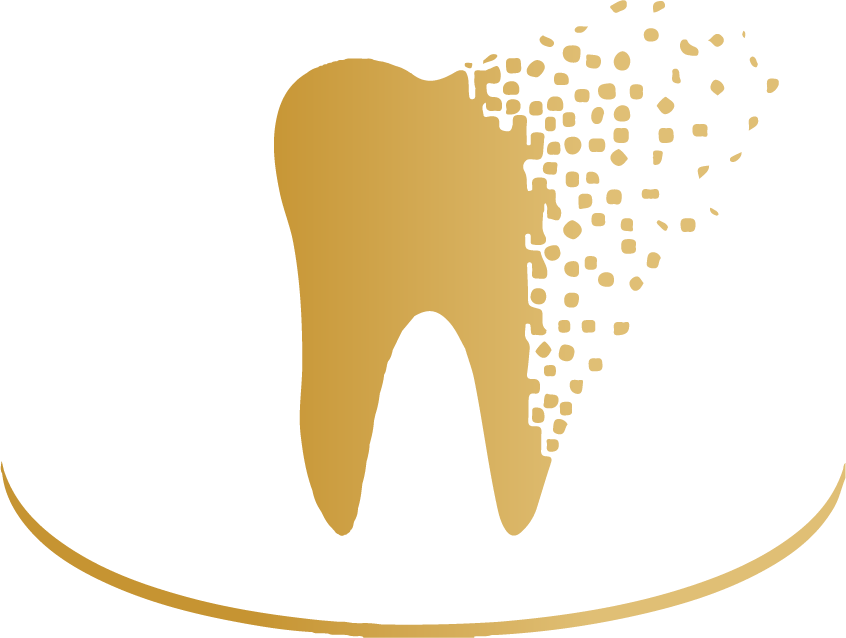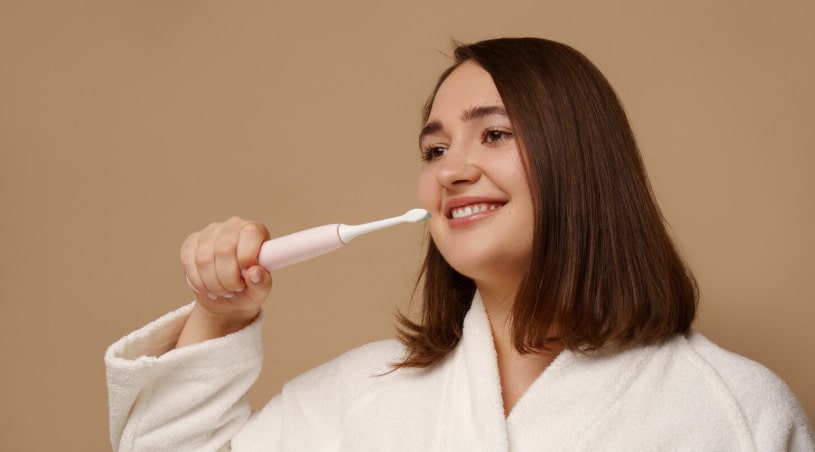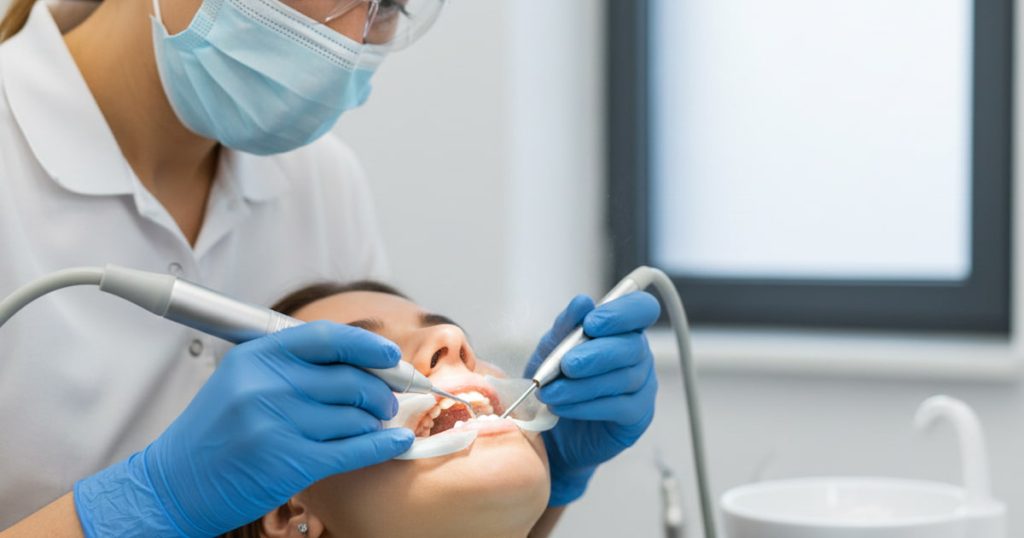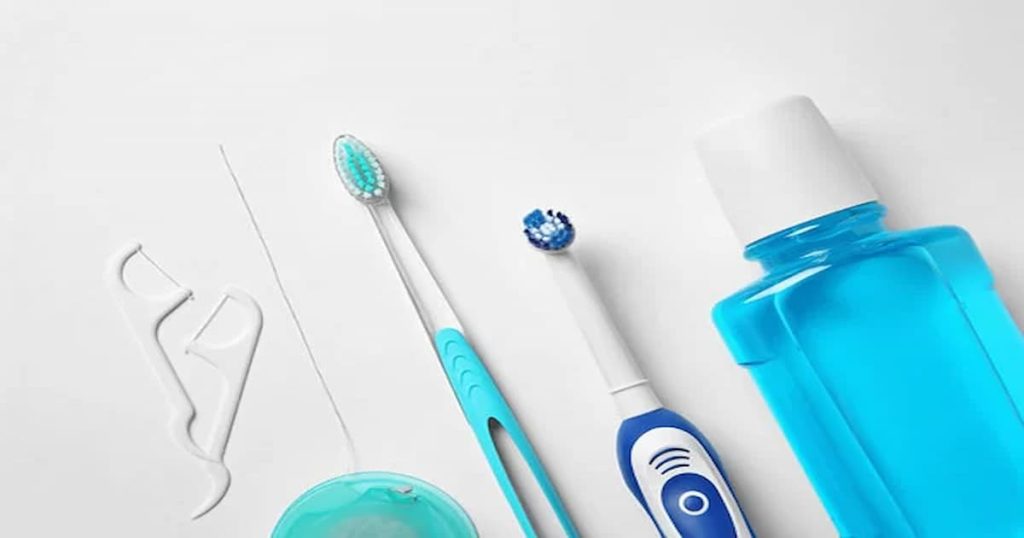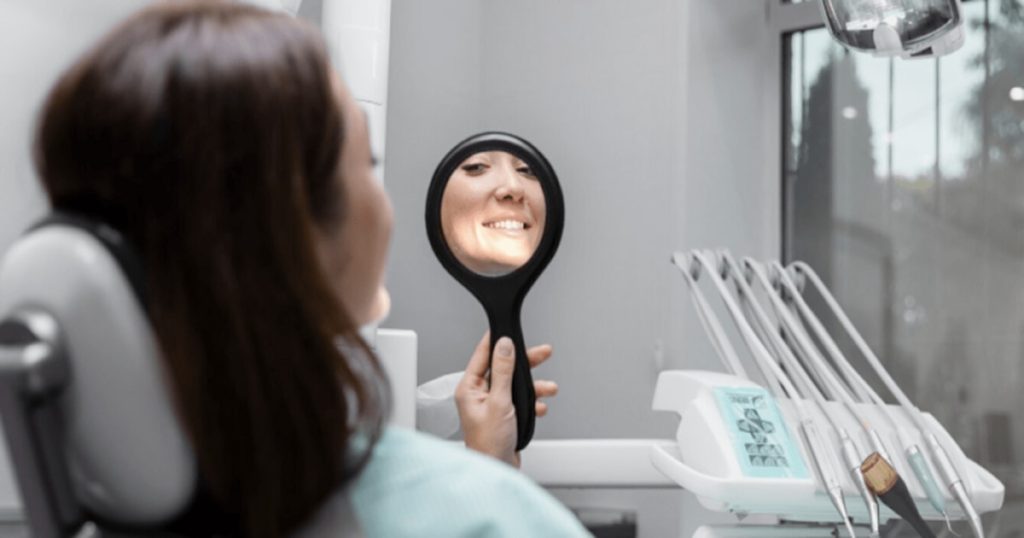Do electric toothbrushes make your oral health better? Yes! They have modern tech features with strong, clean moves. Thanks to these features, they take off more plaque, cut down on sore gums, and help keep even brush pressure. If you need professional teeth care, teeth cleaning services can complement your daily routine perfectly. Continue reading to see are electric toothbrushes really helpful or not!
Benefits of Using an Electric Toothbrush
Many tests show that electric toothbrushes, and especially fast ones that move a lot in a minute, clean much better than hand ones. The best ones can clean over two times more plaque off. This leads to healthier teeth, whiter teeth, and a nicer smile.
Better Plaque Removal
A big plus is how well they take plaque off. Tests show that electric brushes, those that move back and forth fast, are better at it than hand brushes. This means fewer holes in teeth and less hard stuff on teeth.
Improved Gum Health
When plaque is properly removed, your gums stay healthier. Many people who use an electric toothbrush notice less inflammation, bleeding, or swelling in their gums over time. This is especially important for people with sensitive gums or gingivitis.

Consistent Brushing Pressure
A mistake some make with a hand brush is pressing too hard or too soft. Most electric brushes put just the right push on teeth. Some even tell you if you push too hard. This protects the tooth’s top layer and gums from harm.
Different Cleaning Modes
Electric toothbrushes have specific cleaning modes for specific purposes. An electric toothbrush usually has a sensitive mode for sensitive teeth, a whitening and brightening mode to remove stains, a tongue cleaning mode, and various other modes. A high-quality and advanced electric toothbrush has more than 9 different cleaning modes.
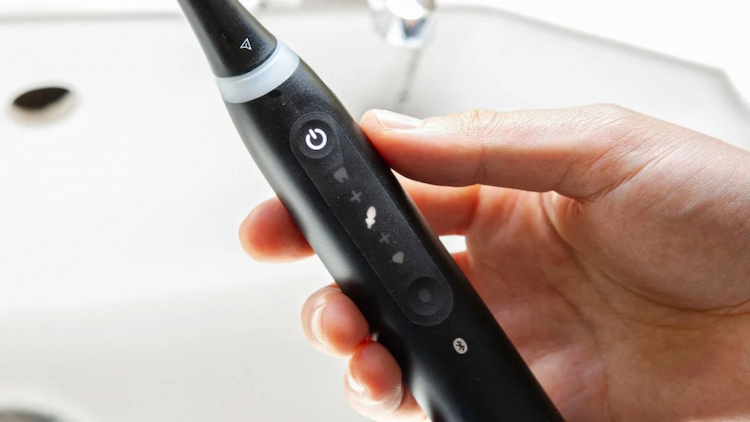
Ready to Elevate Your Smile and Oral Health?
At Woodbridge Smile Centre, our team is dedicated to providing thorough dental exams and expert cleanings that keep your smile shining and your gums healthy. Don’t wait for discomfort or issues to arise. Reach out today and take a confident step toward lasting oral wellness.
Comparing Electric Toothbrushes to Manual Toothbrushes
A manual toothbrush is simple and inexpensive, but its effectiveness depends a lot on the user’s technique and accuracy. If it’s not used properly, it may not clean well. In contrast, an electric toothbrush, with its automatic movements and built-in timer, compensates for many common mistakes.

| Feature | Electric Toothbrush | Manual Toothbrush |
| Plaque Removal | High – especially in rotating or oscillating models | Slightly heavier; needs a charger or batteries |
| Gum Health | Noticeable improvement – reduces inflammation and bleeding | Effective if used correctly |
| Ease of Use | Easier – does most of the work for you | Requires proper brushing technique |
| Pressure Control | Often equipped with pressure sensors | Depends on user’s sensitivity and experience |
| Built-in Timer | Most models include a timer | No timer – must track time manually |
| Initial Cost | Relatively high | Much cheaper |
| Power/Battery Requirement | Yes – requires charging or batteries | No |
| Travel Convenience | Slightly heavier; needs charger or batteries | Lightweight, compact, no extra accessories needed |
| Suitability for Kids/Elderly | Very suitable – especially for those with limited dexterity | Requires more effort and coordination |
How Electric Toothbrushes Work
Electric toothbrushes have a small motor to move the brush head. Each type can move in a back-and-forth way, a round way, or by quick shakes. Some new types mix these moves to clean better.
The quick, right moves of the brush head take out plaque, bacteria, and food bits well. They can even reach between teeth or by the gums, hard spots to get with a hand brush. Also, many electric brushes come with cool tools like many brush modes, a push alert, and a 2-minute clock to help you brush the right time, making your brush work better.
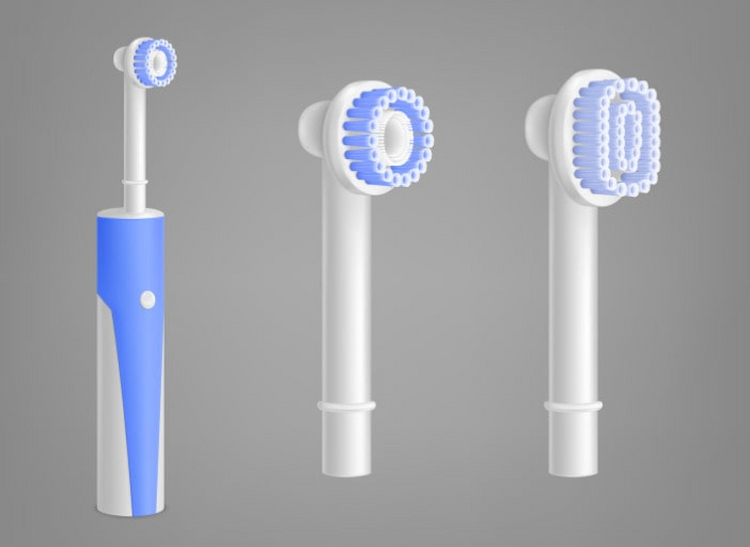
To ensure your dental implants last for years without complications, don’t miss our detailed guide on: How to Take Care of Dental Implants.
Disadvantages of Electric Toothbrushes
One of the downsides of electric toothbrushes is that they cost more than basic ones. Also, finding new heads for them isn’t always easy, even though you can get them online. They may take days to get to you. You can buy and keep a lot of them, but this could cost a lot.
On the flip side, electric toothbrushes need batteries or power from a plug, which might be hard for those who travel. Normal toothbrushes, though, are ready to use no matter where you go. In the end, it might take time to move from a normal to an electric toothbrush, but the good things about them make it worth trying.

What are the types of electric toothbrushes?
There are three main kinds of electric toothbrushes, and they work in different ways based on their speed.
- Oscillating-rotating: This type has a round head and moves back and forth to clean off the plaque. It works a lot like the tools dentists use and gets your teeth clean without you having to push hard.
- Sonic: These move very fast and make sound waves. The waves reach spots that the brush doesn’t touch. They are stronger and clean better than the first type.
- Ultrasonic: These are the top type and use very fast waves. The waves break up the plaque even if the brush doesn’t move much.
Which should you pick? If you need something easy and not too costly, go for the oscillating-rotating one. Sonic toothbrushes go deeper and are good if your gums are soft. Ultrasonics are best if you care a lot about clean teeth or wear braces. Yet, how you use it each day matters most.
Features to Look for When Buying an Electric Toothbrush
When you buy an electric toothbrush, there are a few main things to keep an eye out for to get the best one.
1. Brush Moves Per Minute (BPM)
The higher the moves per minute, the better it cleans. Moving head types usually have between 1,300 and 8,000 BPM, while sound types start at about 24,000 BPM. Very fast types are even stronger.
2. Cleaning modes
Many electric brushes have different cleaning methods. These ways let you change how strongly it brushes and how it moves to match what you need, so your teeth feel cleaner and you feel good.
3. Timer, Push Alerts
A timer set for two minutes is there to make sure you brush long enough. Alerts for when you press too hard help as well, as they keep your gums safe.

4. How it Charges
You can charge electric brushes with a USB or on a dock. USB is good when you travel because it’s small and easy to use. Dock types look cleaner and are easier to use at home.
Want to help your child build healthy dental habits from the start? These Tips for Childhood Dental Issues will show you how.
Say Yes to Better Oral Health with Electric Toothbrushes
An electric toothbrush can help make your teeth cleaner. Its top cleaning power, gum care, and smart parts make it a good choice for keeping your teeth and gums in great shape.
For more tooth care, go to a good family dentist often. This way, you and your loved ones get the right and full tooth help you need.
FAQ
What do dentists think about electric toothbrushes?
Most dentists say that electric toothbrushes work better than hand ones. They clean teeth well and are easy for most to use the right way. Dentists often pick ones that spin or buzz because they are great at getting rid of plaque and making gums healthy.
What is the bad part of using an electric toothbrush?
The main issues are that they cost more at first, and you need to charge them or switch out batteries. They are hard to take with you when you go places. Also, if you push too hard, they might hurt your gums, but lots of them have built-in sensors to stop this.
Do doctors like electric toothbrushes?
Yes, a lot of dentists and people who look after teeth tell us to use electric toothbrushes, especially if you don’t brush well or if your gums are not in good shape. Electric ones give a full and even clean.
Are Electric Toothbrushes worth the money?
In a lot of cases, yes, because they keep your mouth clean and can cut down on what you pay the dentist over time. How well they work depends on whether you use them correctly and often. If you want to make things easy and get good results, an electric toothbrush is a smart pick.
Have you switched to an electric toothbrush yet? Share your experience or any questions you have about improving oral health in the comments below!

